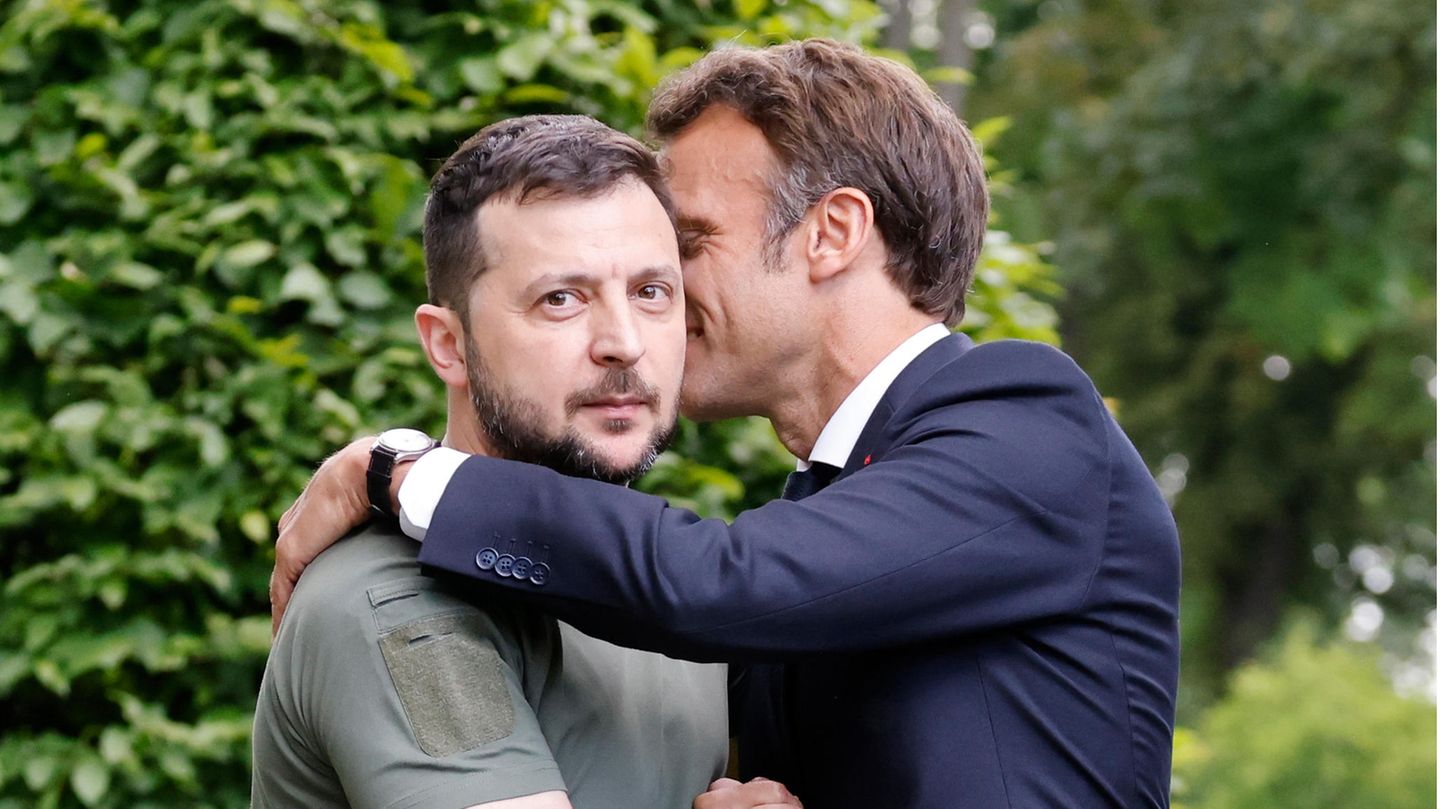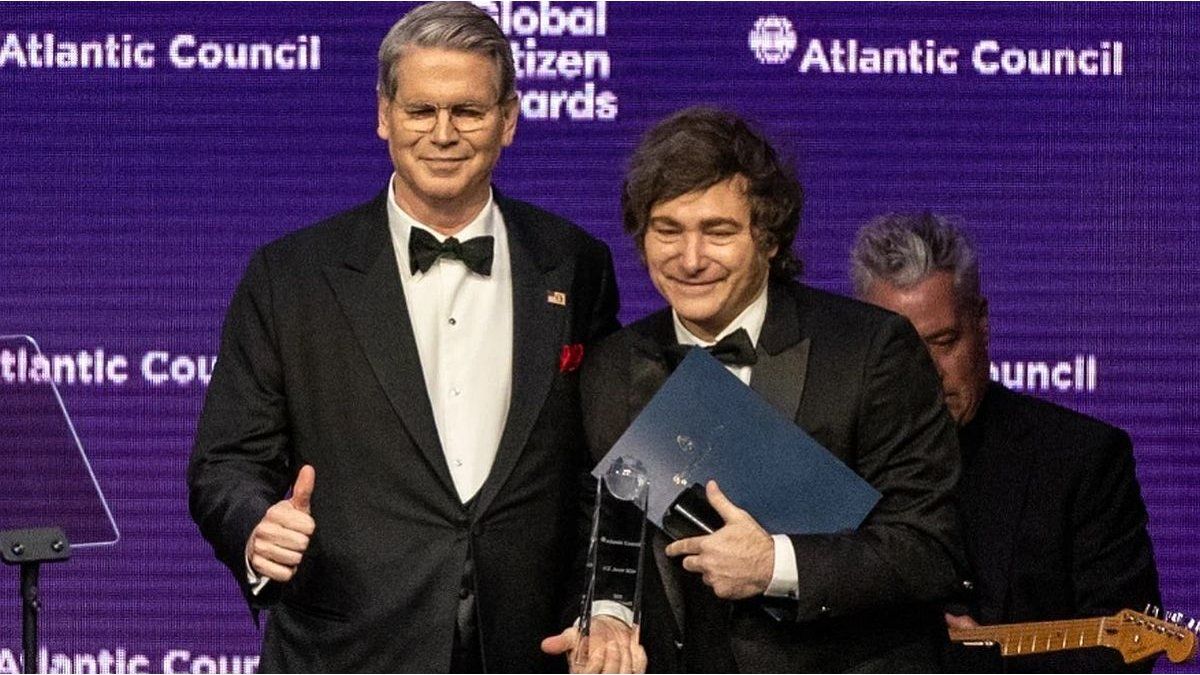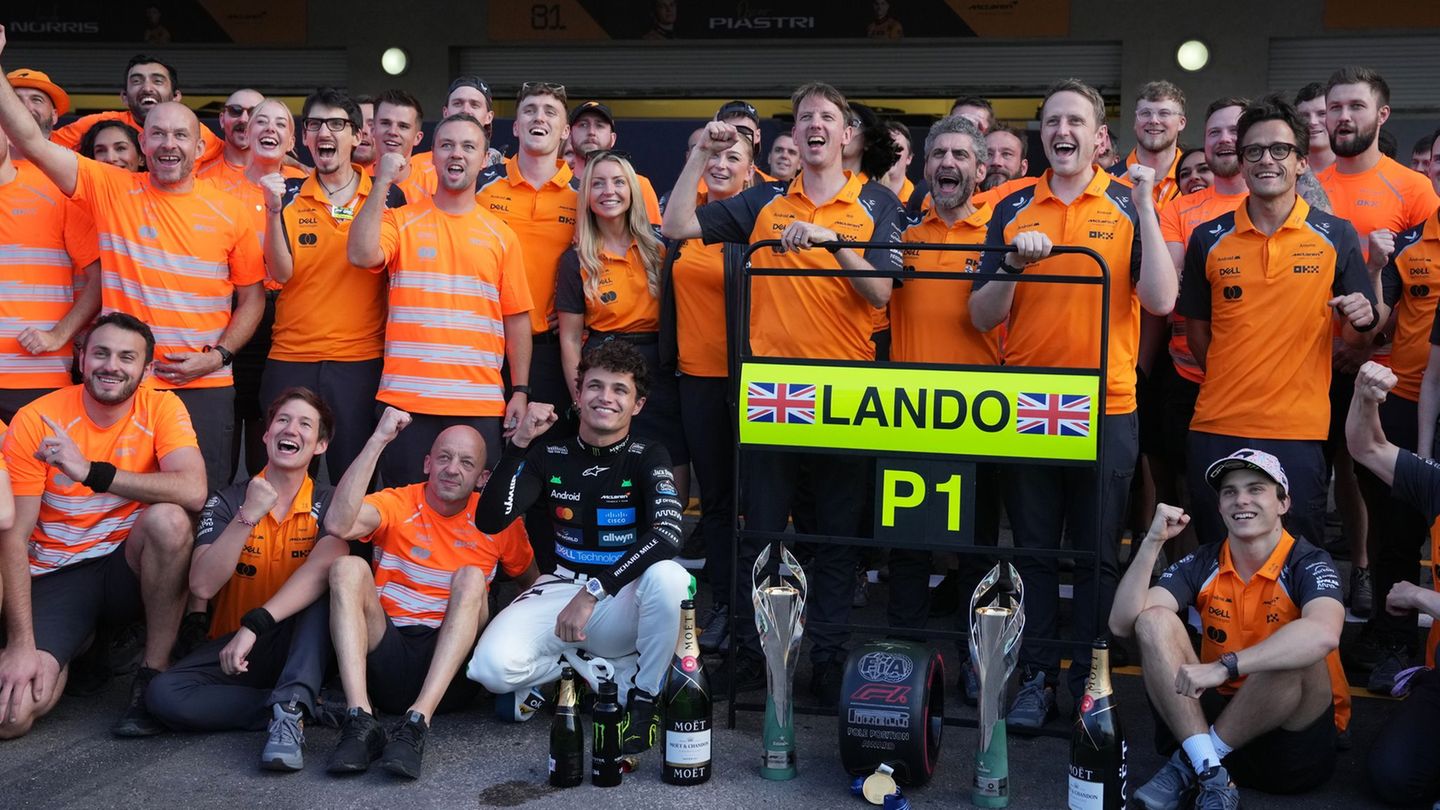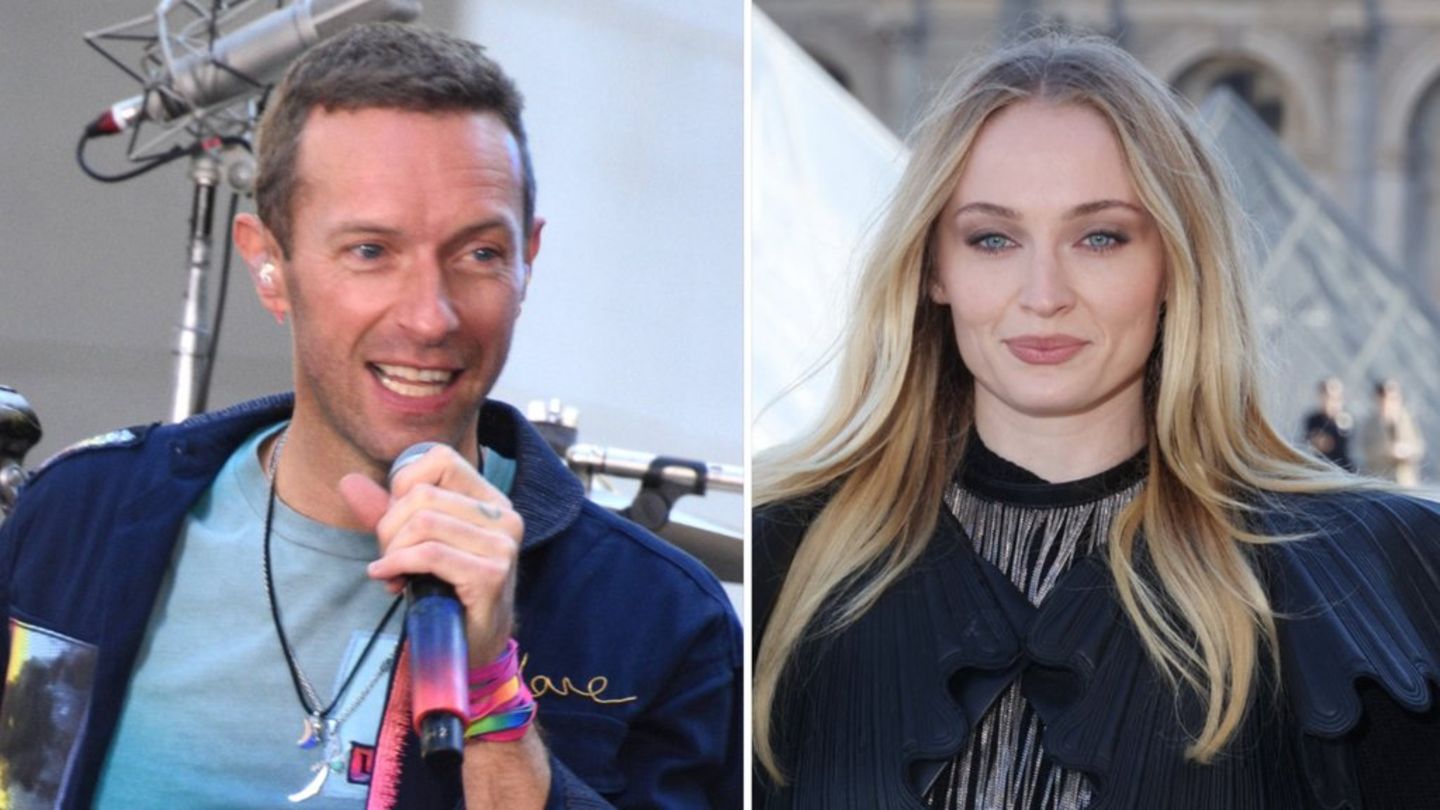analysis
The road to Brussels is long, but Ukraine has taken the first step. Next week she could be officially chosen as a candidate for EU membership. What President Zelenskyj is already calling “historic” could then become real – and be a promise for the future.
The relief in Kyiv was great, the expectations were higher. As expected, there were no concrete commitments for the delivery of heavy weapons. Nevertheless, after the visit of the EU-Machelite travel group, consisting of French President Emmanuel Macron, Italy’s Prime Minister Mario Draghi and Federal Chancellor Olaf Scholz, one should have breathed a sigh of relief in Ukraine. The message: Ukraine should be given candidate status.
Prime Minister Volodymyr Zelenskyj spoke of a “historic day”. Ukraine has never come so close to the Union. The fact that the three most influential EU states have spoken out in favor of Ukraine joining is probably the clearest expression of solidarity in a long time.
Now, candidate status, insofar as it is actually granted at next week’s EU summit, is only the first step on a long, probably extremely rocky road. It’s like being invited to a job interview: although there is mutual interest, the signing of the contract is far from in sight.
The question now is: would candidate status have a tangible or purely symbolic effect?
The road to the EU: Ukraine is at the beginning of the beginning
In principle, any European country can apply for membership “if it respects the democratic values of the EU and is committed to promoting them.” However, Ukraine is at the beginning of the beginning. First, she must qualify for the application as such – despite the advocacy of Scholz and Macron. Because nothing works without an official candidate status. In order to join, it must meet the requirements known as the “Copenhagen Criteria”, which include points such as “stable institutions as a guarantee of democratic order”, “respect for human rights and minorities” and the competitiveness of the economy.
However, candidate status does not just mean a safe place in the waiting room. With the so-called “pre-accession aid”, potential members are entitled to financial support from the EU budget, the funds of which should pave the way for the candidates. The international community sees the program as “an investment in the future” and is intended to initiate “political, institutional, social and economic reforms”.
Once these first hurdles have been cleared, the formal accession negotiations can begin. But they drag on for years – not least of which Turkey can sing a song. The candidate status does not necessarily say anything about the chances of a candidate actually becoming a full member of the EU. What complicates matters further: All 27 EU members have to agree to each accession phase. A small glimmer of hope: At least the Turkish President Erdogan cannot stand in the way this time. Whereby – the role of the curmudgeon could certainly be taken over by Hungary’s Prime Minister Viktor Orban.
Candidate status: a title with brilliance
Yes, with the candidate status, Ukraine receives concrete financial help with the pre-accession aid, but the real power lies in the symbolism. It would be a symbol with immense radiance – and with real consequences. It is true that the Ukraine currently has little chance of being accepted into the often divided association (read the reasons here). But the EU Commission’s recommendation increases the pressure on the heads of state and government ahead of next week’s summit. By speaking out so clearly in favor of Ukraine’s admission, Scholz, who has honestly earned the title “particularly hesitant” in recent months, indirectly puts the pistol to his counterparts’ chests. When Olaf, the procrastinator, nods eagerly, indecisive members like the Netherlands run out of excuses. In this respect, the summit meeting is likely to become a showdown and persuade Europe to give up the wait and see tactic and (finally) stand firmly behind Ukraine and – and thus against Russia.
As “ABC News” reports, Italy’s Prime Minister Mario Draghi noted in Kyiv that in the event of candidate status Ukraine could overtake the EU candidates from the Balkans (Albania, North Macedonia, Serbia and Montenegro) in the process. This in turn presents the EU with a tightrope walk. On the one hand, the situation in Ukraine is of course “extraordinary”, which is why Brussels wants to hold the door open for Kyiv. On the other hand, the other candidates who have been sitting in the waiting room for decades would be snubbed with an accelerated admissions process for Ukraine.

“A Psychological Weapon”
Granting accession status to Ukraine would also be a promise to the future that reads: We believe in your victory! After all, a state occupied by Putin would be lost for Europe. The status award would not only pay tribute to Ukraine’s pro-European course in recent years. The members would devote themselves – albeit symbolically at first – to the reconstruction of the country after the end of the war. Not only that. As a member of the Union, Ukraine could leave behind its longstanding limbo as a buffer zone between Russia and the EU.
“It’s a psychological weapon to show that Ukraine has a future,” said Oleksiy Honcharenko, a member of the Ukrainian parliament in an interview. Ukraine is the only people on the continent that is dying for European values. “Europe would betray itself if it didn’t make this decision,” the politician continued. A sore point. Because a rejection “would be a dangerous and encouraging signal to the Russian President, who has been claiming for years that the West is not really committed to the countries in the region,” wrote the Brussels online newspaper “EU Observer” back in March.
And the Kremlin? He’s certainly boiling with anger – even if they try to prove the opposite in Moscow. “European fans of frogs, liverwurst and spaghetti like to visit Kyiv. With zero effort,” on Thursday. Putting aside the tedious wagging of stereotypes, such reactions reveal the desperate impotence rampant in Putin’s court. The Kremlin is apparently dealing with fear.
So it remains to be seen whether Europe understands the power of symbolism. It would be hoped for Ukraine.
Sources: ; “”; “”; dpa
Source: Stern
David William is a talented author who has made a name for himself in the world of writing. He is a professional author who writes on a wide range of topics, from general interest to opinion news. David is currently working as a writer at 24 hours worlds where he brings his unique perspective and in-depth research to his articles, making them both informative and engaging.




